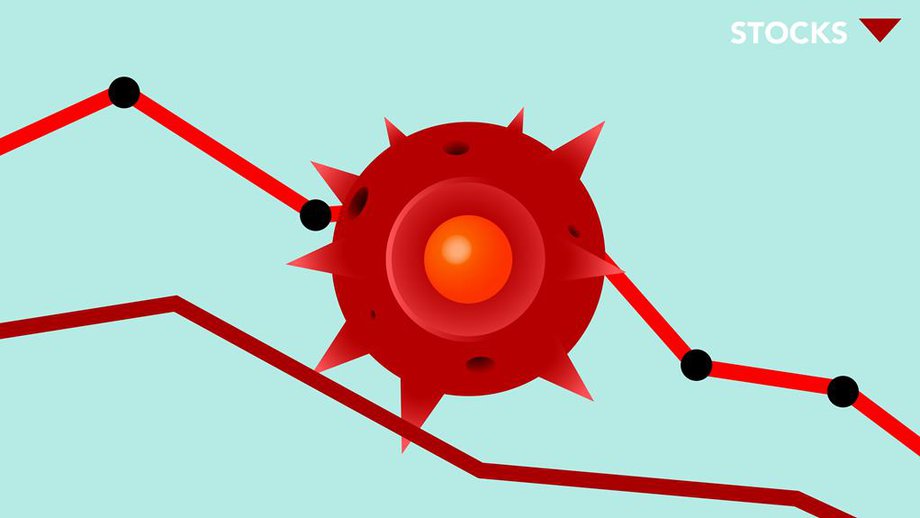Can Weight Management Reduce the Risk of Uterine Fibroids

In the quest for optimal health, the adage 'prevention is better than cure' rings true. Focused on serving the needs of individuals seeking to reduce their risk of uterine fibroids, this article explores the potential benefits of weight management.
By delving into the link between weight and fibroid development, as well as the role of hormones, we aim to uncover effective strategies for weight management that may help prevent these common and often burdensome health conditions.
Key Takeaways
- Uterine fibroids are noncancerous growths in the uterus that can cause symptoms such as heavy menstrual periods, pelvic pain, and difficulty getting pregnant.
- Studies have shown a correlation between obesity and the development of uterine fibroids, with overweight and obese women being at a higher risk.
- Effective weight loss methods, such as maintaining a balanced diet and regular exercise, can reduce the risk of uterine fibroids and improve overall health.
- Hormones play a significant role in the development of uterine fibroids, and excess weight can lead to hormonal imbalances that contribute to fibroid growth.
Understanding Uterine Fibroids: Causes and Risk Factors
The discussion on understanding uterine fibroids focuses on the causes and risk factors associated with this condition. Uterine fibroids are noncancerous growths that develop in the uterus and affect many women. It is important to understand the symptoms, diagnosis, and treatment options for fibroids.
Symptoms may include heavy or prolonged menstrual periods, pelvic pain, frequent urination, and difficulty getting pregnant. Diagnosis is typically made through a pelvic exam, ultrasound, or MRI. Treatment options range from medication to surgery, depending on the severity of the symptoms.
Additionally, exploring the impact of lifestyle choices on fibroid development is crucial. Factors such as obesity, a high-fat diet, and lack of exercise can increase the risk of developing fibroids. Promoting a healthy lifestyle, maintaining a healthy weight, and regular exercise may help reduce the risk of fibroids.
The Link Between Weight and Uterine Fibroids
The link between weight and uterine fibroids has been a topic of interest in recent research. Studies have shown that there is a correlation between obesity and the development of uterine fibroids, with overweight and obese women being at a higher risk.
Furthermore, weight loss has been found to have a positive impact on reducing the risk of fibroids, suggesting that weight management may be an effective preventive measure.
Weight and Fibroid Correlation
Weight is a crucial factor in understanding the correlation between body mass index (BMI) and the development of uterine fibroids. Research has shown that excess weight and obesity are associated with an increased risk of developing uterine fibroids. This is particularly relevant for women who are trying to conceive, as weight can also affect fertility.
Therefore, weight management becomes an important consideration in reducing the risk of uterine fibroids. Implementing effective weight loss methods, such as a balanced diet and regular exercise, can help to improve overall health and potentially decrease the likelihood of developing uterine fibroids.
Understanding the impact of weight loss on fibroid development is essential in guiding women towards making informed decisions about their health and fertility.
Impact of Weight Loss
Implementing effective weight loss methods, such as maintaining a balanced diet and engaging in regular exercise, can have a significant impact on reducing the risk of uterine fibroids and improving overall health.
Weight management plays a crucial role in preventing the development and growth of uterine fibroids. Excess body weight has been linked to an increased risk of uterine fibroids, as well as the severity of symptoms experienced. Additionally, obesity can have a negative impact on fertility and the menstrual cycle, further emphasizing the importance of weight management in reducing the risk of uterine fibroids.
By adopting healthy lifestyle habits and achieving a healthy weight, individuals can improve their fertility and regulate their menstrual cycle.
Transitioning into the subsequent section about prevention through weight management, it is essential to explore specific strategies for maintaining a healthy weight and reducing the risk of uterine fibroids.
Prevention Through Weight Management
By focusing on lifestyle modifications, such as incorporating regular physical activity and making dietary changes, individuals can effectively prevent the development of uterine fibroids through weight management.
Uterine fibroids, also known as leiomyomas, are non-cancerous growths that occur in the uterus and can cause symptoms like heavy menstrual bleeding, pelvic pain, and reproductive issues. Research suggests that obesity and excess weight are associated with an increased risk of developing fibroids.
Therefore, adopting weight management strategies can be an effective way to prevent these growths. Maintaining a healthy weight through a balanced diet and regular exercise can help regulate hormone levels and reduce inflammation, which are key factors in the development of fibroids.
Additionally, weight management can improve overall health and well-being, reducing the risk of various other health conditions. Thus, incorporating weight management strategies is crucial in preventing uterine fibroids and promoting overall health.
Exploring the Role of Hormones in Fibroid Development
Researchers are currently investigating the influence of hormones on the development of uterine fibroids. Hormones play a significant role in fibroid development, and understanding this connection can help in developing effective strategies for reducing the risk of uterine fibroids.
One of the risk factors for fibroids is excess weight, particularly obesity. Excess weight can lead to hormonal imbalances, which can contribute to the growth of fibroids. However, the impact of weight loss on fibroid prevention is not yet fully understood.
Studies have shown that losing weight can have numerous benefits for overall health, including reducing the risk of various conditions. In the subsequent section, we will explore how excess weight and obesity may impact fibroid risk and discuss the importance of weight management in preventing fibroids.
How Excess Weight and Obesity May Impact Fibroid Risk
Significantly, excess weight and obesity have been found to potentially increase the risk of developing uterine fibroids. Research suggests that there is a strong association between obesity and the development and growth of fibroids. This is particularly concerning for women who desire to serve others, as fibroids can have a significant impact on fertility and overall well-being.
To better understand the impact of excess weight on fibroid risk, let's take a look at the following table:
| Excess Weight and Fertility | Weight Loss and Fibroid Size Reduction | |
|---|---|---|
| 1 | Increased risk of infertility due to hormonal imbalances | Reduction in fibroid size, leading to improved fertility |
| 2 | Higher chances of complications during pregnancy | Decreased symptoms and improved quality of life |
| 3 | Increased likelihood of fibroid recurrence after surgical removal | Prevents new fibroid growth and reduces recurrence |
As we can see, excess weight not only affects fertility but also contributes to the growth and recurrence of fibroids. However, the good news is that weight loss has been shown to have positive effects on fibroids. In the next section, we will explore the benefits of weight loss on fibroid prevention and management.
The Benefits of Weight Loss on Fibroid Prevention
Weight loss has been shown to have several benefits when it comes to fibroid prevention. Research suggests that there is a connection between weight and fibroids, with overweight and obese women being at a higher risk.
Weight and Fibroid Connection
The correlation between body mass index (BMI) and the development of uterine fibroids has been extensively studied, revealing a potential link for further investigation. Understanding this connection is crucial for developing effective weight management strategies to reduce the risk of uterine fibroids.
Here are four important points to consider:
- Weight loss benefits: Maintaining a healthy weight can help reduce the risk of developing uterine fibroids. Losing excess weight can improve hormonal balance and decrease inflammation, both of which are factors associated with fibroid development.
- Dietary modifications: Adopting a balanced and nutritious diet can promote weight loss and overall health. Incorporating more fruits, vegetables, whole grains, and lean proteins while limiting processed foods and sugary drinks can aid in weight management and reduce the risk of fibroids.
- Regular physical activity: Engaging in regular exercise not only helps with weight management but also reduces estrogen levels and improves blood circulation, both of which can contribute to reducing the risk of uterine fibroids.
- Stress management: Chronic stress can affect hormonal balance and increase the risk of fibroid development. Incorporating stress-reducing activities such as meditation, yoga, or engaging in hobbies can support weight management and potentially reduce the risk of fibroids.
Preventing Fibroids Through Weight
One potential approach to reducing the risk of fibroids is through maintaining a healthy weight, as it can have beneficial effects on fibroid prevention. Weight loss and maintaining a healthy weight can help regulate hormone levels, which can play a role in the development and growth of fibroids.
A well-balanced diet plan that focuses on nutrient-dense foods can support weight loss and overall health. Incorporating plenty of fruits, vegetables, whole grains, lean proteins, and healthy fats can help promote weight management and reduce the risk of fibroids.
Additionally, regular physical activity is important for maintaining a healthy weight and reducing the risk of fibroids. Engaging in exercises such as walking, swimming, or yoga can be beneficial.
It is important to consult with a healthcare professional to develop a personalized weight loss and diet plan that suits individual needs and goals.
Effective Strategies for Weight Management and Fibroid Prevention
Recent studies have shown that implementing consistent exercise routines, coupled with a nutrient-rich diet, can significantly contribute to the effective management of weight and the prevention of fibroids. To optimize the effectiveness of weight management strategies and fibroid prevention, individuals can consider the following:
- Regular physical activity: Engaging in regular exercise, such as brisk walking, jogging, or cycling, can help burn calories and maintain a healthy weight. It is recommended to aim for at least 150 minutes of moderate-intensity aerobic activity or 75 minutes of vigorous-intensity aerobic activity per week.
- Balanced and nutritious diet: Consuming a diet rich in fruits, vegetables, whole grains, and lean proteins can support weight management and provide essential nutrients. It is beneficial to limit the intake of processed foods, sugary beverages, and high-fat foods.
- Portion control: Being mindful of portion sizes can help prevent overeating and support weight management. Using smaller plates and bowls, measuring food portions, and practicing mindful eating can all contribute to maintaining a healthy weight.
- Seeking professional guidance: Consulting a healthcare professional or registered dietitian can provide personalized advice and support in developing effective strategies for weight management and fibroid prevention. They can provide guidance on creating a balanced meal plan, setting realistic goals, and monitoring progress.
Frequently Asked Questions
What Are the Symptoms of Uterine Fibroids?
Uterine fibroids can cause symptoms such as heavy or prolonged menstrual bleeding, pelvic pain, frequent urination, and reproductive issues. The causes of uterine fibroids are not fully understood, but treatment options include medication, minimally invasive procedures, and surgery.
Can Uterine Fibroids Affect Fertility?
Uterine fibroids can have a significant impact on reproductive health and can affect pregnancy outcomes. It is important to consider weight management as a potential factor in reducing the risk of uterine fibroids.
How Are Uterine Fibroids Diagnosed?
Uterine fibroids are typically diagnosed through a combination of medical history, physical exams, and imaging tests. Treatment options include watchful waiting, medication, and surgery, depending on the size, location, and symptoms of the fibroids.
Are There Any Non-Surgical Treatment Options for Uterine Fibroids?
Non-invasive treatments and alternative therapies are available for uterine fibroids. While weight management may not directly reduce the risk of developing fibroids, maintaining a healthy weight can positively impact overall reproductive health.
Can Uterine Fibroids Become Cancerous?
Uterine fibroids can cause pain and do not typically shrink on their own. While weight management may not directly reduce the risk of uterine fibroids, maintaining a healthy weight is generally beneficial for overall health.









